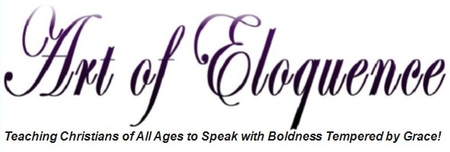For the past several weeks, I've been talking about misused words. Some have been misused on purpose in order to deceive and some have been misused by accident due to the complexities of the English language. Today, I'd like to talk to you about the words that are misused on purpose for humor or for effect.
Shakespeare was famous for inventing or coining words. Many of the words we use today are words he created. I've dabbled in the creation of words here and there in order to entertain and to make a point. But is there a point at which intentionally misusing words becomes confusing and counterproductive? Indeed there is.
I'd like to start off by citing a few words that have been coined, created, made up. I'll share some research I found about each of them and whether or not they are considered acceptable and understood.
1. Ginormous
The first use of Ginormous was in 1948 as British "military forces' slang". It's a blend of gigantic and enormous and refers to something extremely large or gigantic in size. Ginormous is a word that is currently acceptable to use, but only in informal conversation. It is considered a bit too childish a word to use in formal or business settings.
2. Frugal
Frugal was one of the thousands of words created by William Shakespeare. It's first use was in 1598 in The
Merry Wives of Windsor and has become part of the common English terms. I don't think I have to tell you its meaning.
3. Chillax
Chillax was first used in about 1996 by teens to mean a combination of chill and relax. It's usually only acceptable if you are somewhere between 14 and 20 and, then, only when not directed toward a parent!
4. Nucular
Nucular is actually a mispronunciation of the word Nuclear. It appears to have been brought into the limelight by former President George W. Bush, but I have been told that it is pronounced this way by some Southerners. Nucular is not an acceptable way to pronounce nuclear as evidenced by the numerous times former President Bush was chastised for it.
5. Irregardless
Now here's a word that has been misused by the general public since at least 1874! It is thought to be a combination of irrespective and regardless. "Irregardless" of its widespread misuse for more than 130 years, it has not endeared itself to the dictionary powers that be! Thus it is considered just plain wrong.
I have been known to create a word here and there as well. You may have read my monthly
FIMM column where I report his misadventures for your amusement and "confusement!" Additionally, you might have read my recent communication article,
My Reasons vs Your Excuses, where I talk about "reascuses" being a blurring of reasons and excuses.
Making up your own words can be fun and entertaining, but as I said before, it can also be confusing. Here are some tips for using "unwords."
1. Use quotes.
When using a word you have made up, put quotes around it to offset it from the sentence allowing your reader to understand that this is something unusual.
2. Have them make sense.
The reader should have little trouble gaining the meaning of your new word from the context of the sentence. Making your reader struggle and strain ("strainuggle?") to decipher your communication is frustrating at best.
3. Don't over do it!
Having "muchomany" "unwords" in your sentence, even if "everyonebody" can follow your line of "rethinking," can be quite cumbersome and perhaps even "megasupericiously" "confusicating!"
This concludes your lesson on when it is "okey smokey" to "use-ify" "unwords." I now return you to your regularly scheduled blog!
~*~*~*~*~*~*~*~*~*~*~*~*~*~
JoJo Tabares holds a degree in Speech Communication. Her Christian and humorous approach to communication skills has made her a sought after speaker. JoJo’s articles have appeared in various homeschool magazines and websites such as Dr. Laura.com. Her Say What You Mean curricula is endorsed by The Old Schoolhouse Magazine and her eBook, Say What You Mean When You’re in Business, has been used by direct sales leaders and small business owners alike. For more information, please visit
http://www.ArtofEloquence.com
